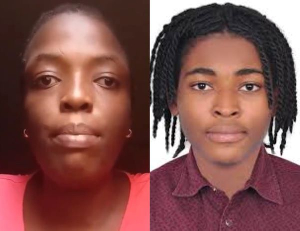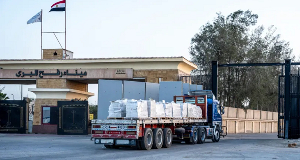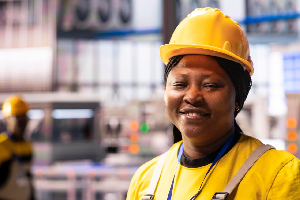In Africa, magic and medicine mix. The medical and the mystical are often conflated. Traditionally, the diagnosis and treatment of diseases is believed to be a factor of the natural and the supernatural, the physical and the metaphysical, the material and the spiritual causes and agents. This 'medical mesh' has created confusion in the minds of modern day Africans. It is undermining health care programs in countries across the region. Purported spiritual remedies are doing in calculable damage to the health care system. Peddlers are fleecing vulnerable people. Before the introduction of modern medical treatment, herbal and spiritual 'remedies' were the mainstay of the healing system. Local medicine men and women administer concoctions made from 'medicinal' roots and plants. They combine medicinal substances with incantations, invocation of spirits, ritual sacrifice and offerings to ensure 'efficacy' and 'guarantee cure'. But much of it was folk medicine.
The introduction of modern medical therapies drove traditional medical practices underground. The traditional practictioners, described as 'witch doctors' were forced to operate on the margins of the society, in poor rural communities. They were sought after only by those seeking alternative medical therapies; those suffering from terminal and incurable diseases, or those who could no longer afford 'modern' health care.
But in the late 80s the situation began to change. The structural economic adjustment programmes adopted by many African countries made 'modern' medicine very expensive. State health care systems collapsed. Lack of drugs, medical personnel and equipment and rising costs of modern medical treatment drove many Africans to re-embrace spiritual and herbal remedies.
In the last decades, many parts of Africa have witnessed a resurgence of traditional medicine, 'alternative' therapies and miracle cures. The emergence of christian faith healers like Nigeria's T. B Joshua, who claim to cure all sorts of diseases has further complicated the health care situation. Folk and faith healers have created a lot of confusion in the minds of the people. In fact the situation has become so bad that many people now listen more to their pastors and mallams than to their doctors when it comes to health matters. African pastors have compelled some of their church members who are HIV positive to discontinue their anti retroviral treatment and other evidence based medical treatment for some undefined miracle cures.
Hence it was encouraging to hear the wife of Ekiti state governor in Nigeria, Mrs Bisi Fayemi, speak out against herbal and spiritual treatment of diseases. Mrs Fayemi warned women to stop going to herbalist and religious centers for diagnosis and treatment of cancer. She made it categorically clear that they had no therapeutic value; that the solutions to health problems like cancer could not be found at herbalist and religious centers. Instead she advised:
''If you observe a lump in your breast, please don't go to the nearest herbalist, don't go to the nearest worship center for a solution and don't ignore it. Don' carry your Bible and say 'it is not my portion'.
She further stated: ''For those of you that believe in the saying that what you don't know cannot hurt you, I must tell you that what you don't know can actually kill you''.
It is not common to have a 'state official' come out to openly advise people against patronizing herbal and faith healers. I hope other state officials in Nigeria would emulate Mrs Fayemi and get people across the country to stop going to herbal and religious centers when they have health problems, and instead seek out evidence based medical treatment.
It is not clear how many women in Nigeria who will embrace this life saving directive particularly in a country where faith clinics like those operated by T. B Joshua, David Oyedepo, and other faith healers have become the first port of call for people who have health problems.
In Ghana, many Indian spiritualists and astrologists are peddling spiritual solutions to problems facing people in Ghana. They advertise their paranormal goods on local newspapers like the Daily Graphics.
Some days ago I saw two of the advertisements on one of the major newspapers. In one of the adverts, a local Indian priest based in Accra claimed to be ''specialized in all kinds of Astrology, Numerology, Face Reading and Hand Reading''. He said he had solutions to all problems including ''Evil Spirit, Bad Luck And Black Magic, Evilsight And Jaado Obeah Will Be Removed and Gives You Powerful Protection For Life Long 100% Guarantee''.
Another indian priest advertised some ''Vedic Solutions'' to problems related to ''Family, Education, Marriage, Love, Job Business(sic), Divorce, Children, Promotions, Health, Wealth, Husband and Wife Relationship, Money Problems, Evil Effects, Overseas Opportunities...''
He added in the advertisement ''If you want to find solutions for all your problems or clear any doubts, then this is the right opportunity''. The right opportunity indeed.
I do not know the number of Ghanaians who patronize these spiritual charlatans from India. I guess many would have fallen prey to these spiritual scams. In Ghana unemployment is very high. Many people have family, health or money problems and are desperately looking for solutions. But do these Indian spiritualists who face similar problems in their home country have the real solutions?
After reading the advertisement, I became curious and wanted to get these acclaimed world famous astrologers and spiritualists to solve some of my health problems.
I rang up one of the contacts to seize ''the right opportunity'' and clear my doubts concerning these con artists. A man who spoke with heavy Indian accent picked the phone. He claimed to be the Priest, Rama Krishna, with an office in Osu in Accra. I inquired to know how I could get solutions to my health problems. But Rama Krishna replied that I needed to come down to Accra. I told him that I was staying in Tamale, which was very far- around 613 kilometres - from Accra. That I did not have enough money for transportation. I urged him to try and do it via telephone but he refused. He insisted I come down in person to Accra. He said I should come along with 10 Ghana Cedis( 4 dollars) for consultation.
Already I could see that he was trying to solve his money problems first. But will many Ghanaians who are desperately looking for solutions to their family, health, money or business problem notice this scheme meant to further impoverish them?
Opinions of Wednesday, 26 March 2014
Columnist: Igwe, Leo














